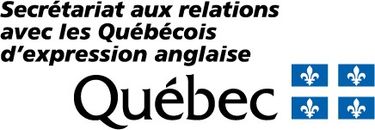Professor of English Linguistics, University of Regensburg
November 2024
What is your current focus of research?
My research focuses on World Englishes and language policy in multilingual contexts.
One ongoing project looks at text messages in Singapore English. We've built a corpus over the past few years, and it has now matured to the point where we've released it to the public. Another project, currently in the pilot phase, examines English as spoken in Taiwan.
Can you expand a bit more on the term “World Englishes”?
It refers to the different forms of English worldwide. English is used as a native language in some places, as a post-colonial lingua franca in others—like India and Singapore—or as a foreign language in places like Germany and France. I study how these Englishes differ structurally, grammatically, and lexically, as well as how they emerged, who uses them, and in what contexts.
How did you become interested in this topic?
I've been interested in language for a long time. I grew up in Switzerland in a Swiss German family in a francophone setting, so I was exposed to bilingualism and multilingualism early on, as well as language variation, planning, and policy.
I first encountered the topic of World Englishes during my studies in English Language and Literature. I eventually chose Singapore English as the subject of my doctoral thesis. It has stuck with me ever since.
Why Singapore English?
Singapore was interesting because I had never been to Asia, and it felt like a step into the continent while still being highly Western in its development and English proficiency. This English was a variety that stood out in a course I took and, while a lot had already been done on the subject, much more remained to be studied. It also shares similarities with Switzerland in terms of having multiple “official languages”, which made it feel familiar.
How did this lead you to Quebec?
It was part of the broader theme of my postdoctoral research on English in multilingual contexts. After studying Singapore’s detailed language policies, I sought a setting with comparable educational and policy resources where English plays a role but is shaped by different ideological forces. Quebec seemed like a good comparison.
How does language planning and policy in Quebec compare to the other countries you’ve studied?
In my book based on this research, I compare Quebec with Singapore and Wales. In Singapore, the state strongly promotes English, seeing it as a crucial element in nation-building by supporting economic development and facilitating people’s access to the global economy. As a result, English has become the dominant home language, which wasn’t the case two generations ago. This contrasts with Quebec’s focus on promoting French and strengthening its economic position over English.
Wales is more like Quebec in its approach to language policy. The government does not promote English, as it is already dominant, but instead focuses on preserving and expanding Welsh. Welsh policymakers have looked to Quebec for inspiration, and language legislation in Wales follows a similar model to Quebec’s: local authority signage must be in Welsh, and bilingual signs must place Welsh first, creating a hierarchy. Adult language education is encouraged, and large companies are required to develop a Welsh language plan to ensure services are available in Welsh.
Are there any key differences between Quebec and Wales?
One key difference between Quebec and Wales is how they approach language in relation to immigration. Quebec is highly aware of being in a country built on immigration, and has clear processes in place for newcomers. Quebec ensures that those arriving integrate into the French system. In contrast, the Welsh language is not integrated into migration policies in the same way.
You can survive entirely in English in Wales, but it is increasingly difficult. For example, there are better job opportunities in the civil service if you speak Welsh. If you have children going through the education system, you will also encounter the language because of policies that require Welsh to be taught in schools.
Is this leading to a Welsh language rejuvenation in the younger generations?
The data suggests this. Age grading and recent censuses show that school-going generations report higher percentages of Welsh ability than the older ones. However, this may decline once people leave school and they have less exposure to the language.
What has been a memorable human interaction when researching linguistic identity?
One memory that stays with me isn’t about linguistic identity in research but is still worth noting. When I moved to Germany 15 years ago, it was a new environment for me, and I initially felt extremely uncomfortable using standard German in informal contexts. Growing up in Switzerland, I used Swiss German for informal communication, while standard (or High) German was reserved for reading, writing, news, and especially religion – the top domain of formality. I remember the moment it struck me: watching 12-year-olds on the tramway casually speaking High German as if it were the most natural thing in the world (which it was for them, of course). It took me a while to adapt.
Now, my own children have grown up in Germany as native German speakers. Over time, I’ve come to terms with it, and my own linguistic identity has changed. I now use standard German for informal purposes—something that once felt unnatural but now works for me.



